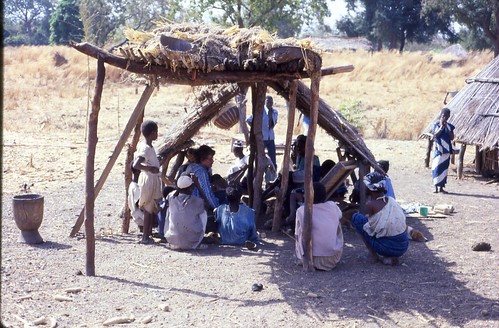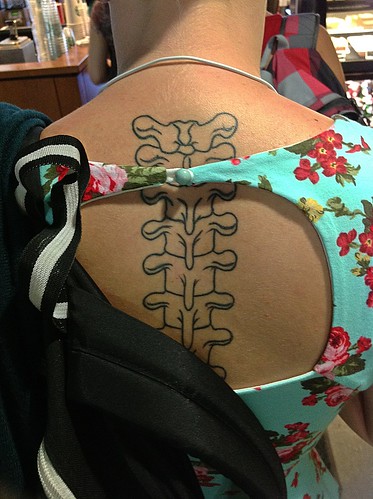Course syllabus
ANTHRO 324: Medical Anthropology
SEMESTER ONE, 2018
15 points
Course Convenor: Heather Battles - h.battles@auckland.ac.nz
Heather's office hours: Thursdays 11am-12pm (after class), HSB 718 (7th floor)
Lecturers:
Heather Battles - h.battles@auckland.ac.nz
Judith Littleton - j.littleton@auckland.ac.nz
Susanna Trnka - s.trnka@auckland.ac.nz
Course delivery format:
3 hours - 2 hours + 1 hour - mixed lecture, class activity, discussion
(Timetable and room details can be viewed on Student Services Online)
Course Description:
Medical Anthropology is a subfield of general anthropology and draws most especially on biological and social/cultural anthropology to address issues of human health and disease. Included in the subfield are studies of the co-evolution of humans and diseases, human ecology, cultural constructions of health and illness, medical knowledge and practices relating to health, illness and healing, provision of health services, health effects of development and globalisation, and the relationship between health, politics and economics. While not all of medical anthropology is applied, there is a strong trend in that direction.
Course Outcomes:
This course introduces a framework of understanding issues in health and illness which draws from biological anthropology and social/cultural anthropology.
- A major objective of this course is to provide you with the information, resources and academic experiences that enable you to bring an appropriate range of perspectives to bear on topics within medical anthropology.
Also important is knowledge of how medical anthropology is central to current debates in anthropology and can add a unique perspective to interdisciplinary health research and practice. As health is a complex topic, it is rarely possible to address an issue in the anthropology of health by using just one theoretical framework or a single research method.
- Examining how different approaches may be satisfactorily combined to address particular topics is another course objective.
As you will realise by the end of the course, there is a large and growing literature in the dynamic field of medical anthropology. We have selected from it only a very limited number of topics and debates to pursue in class. However, if you have a particular interest, we encourage you to formulate this into an essay topic. For example, there may be students from a nursing background who would like to analyse some aspect of nursing, or people interested in development studies who could define a health and development topic. Some class time will be spent identifying areas of interest and formulating topics.
- Developing skills in research topic formulation is another course objective.
You are expected to make full use of the university libraries in researching your essay. You are also expected to use the theoretical and analytical skills gained in the course to examine your particular essay topic.
- To be able to esearch and write analytically about your topic, your contemporary world and your own experiences is the final course objective.
Assessment Summary:
Coursework consists of
- an in-class test of an hour, worth 20%
- essay topic statement and five relevant bibliographic sources, worth 5%
- an essay of approximately 2500 words, worth 35%,
- two compulsory exercises, worth 3% each
- best two out of three in class exercises, worth 2% each.
There is a final two hour exam, worth 30%.
*****ALL COURSEWORK (except tutorial exercises) WILL BE SUBMITTED TO CANVAS NOT HARDCOPY BY 10.59 AM ON THE DUE DATE*****
Weekly Topics:
To be completed but they include: Why medical anthropology? Why ethnography?, How people explain health and illness, different systems of healing, biocultural influences on health (or how culture becomes biology and vice versa), the role of power in health, etc.
Prescribed Texts:
Holmes, Seth (2015) Fresh Fruit, Broken Bodies Berkeley: University of California Press (Available as an e-book from the library, hard copy, kindle or audible)
Recommended Texts:
Joralemon, Donald. 2017, or 2010. Exploring Medical Anthropology. Boston: Allyn and Bacon. (We recommend this especially for students who are new to anthropology).
Park and Fitzgerald (eds) SITES Volume 1(1), is a collection of papers on New Zealand and Australian Medical Anthropology.
Workload and deadlines for submission of coursework:
The University of Auckland's expectation is that students spend 10 hours per week on a 15-point course, including time in class and personal study. Students should manage their academic workload and other commitments accordingly. Deadlines for coursework are set by course convenors and will be advertised in course material. You should submit your work on time. In extreme circumstances, such as illness, you may seek an extension but you may be required to provide supporting information before the assignment is due. Late assignments without a pre-approved extension may be penalised by loss of marks – check course information for details.
Course summary:
| Date | Details | Due |
|---|---|---|


